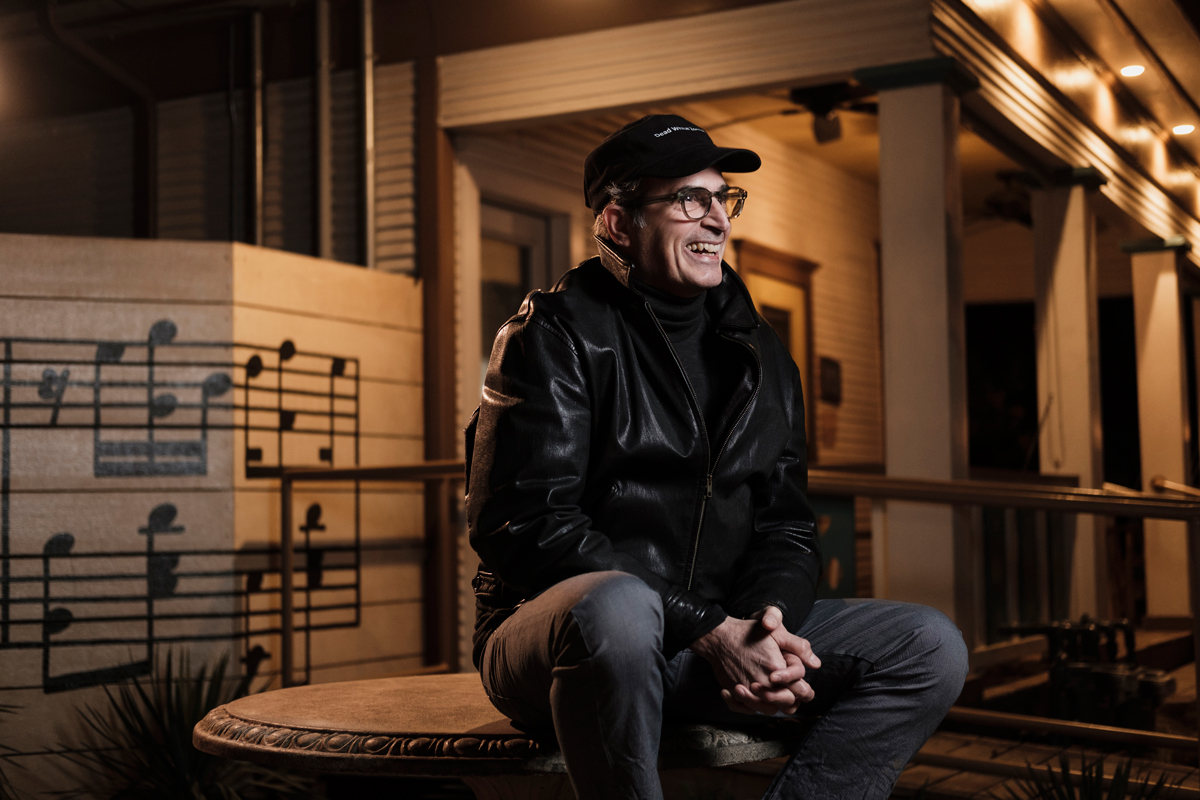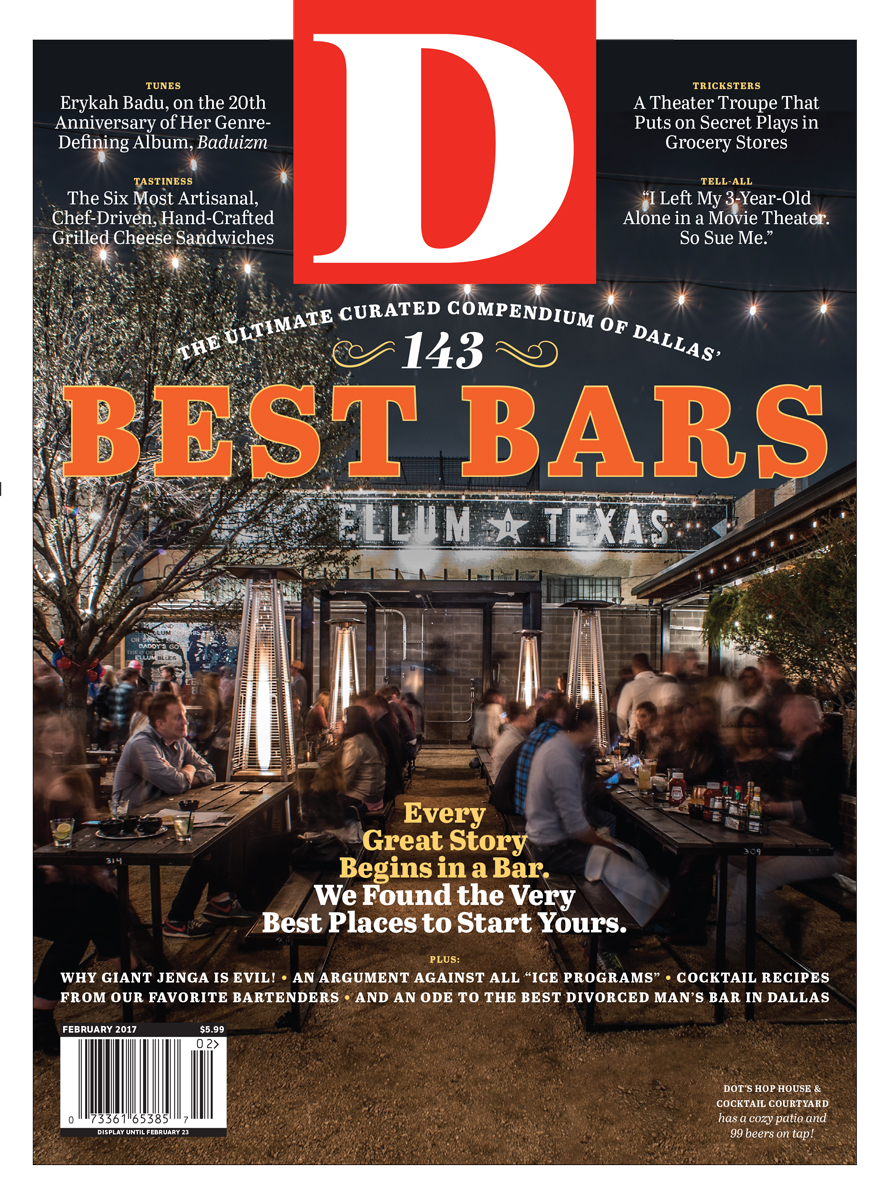On a gray and misty Saturday afternoon in December, the Whole Foods in Lakewood is crowded with shoppers stocking up on groceries for the week. The lines at the checkouts are four or five deep, and the bar area is crowded with people enjoying craft beers. Save for the seasonal holiday decor and items, the scene is more or less like the one that plays out every Saturday afternoon.
In the freezer section, however, something is off. There is a young man, maybe late 20s, tall and thin, shuffling down the middle of the aisle. He slides the toe of his right shoe in a semicircle and then brings his left foot forward to meet it. He pauses, then repeats the sequence. At a glance, you might ignore him, brush him off as a little touched. But upon closer observation, something organized and intentional reveals itself in his movements. His eyes are fixed on the floor, and it looks as if the man is tracing out invisible patterns, like he’s looking for something hidden in the lines of the concrete. As he shuffles down the aisle, his odd, smooth movements register as a kind of dance.
The other shoppers in Whole Foods don’t appear to notice the dancer, nor do they catch the other snippets of eccentric behavior happening all around the store. While standing watching the dancing man, a short man with a beard and long, unkempt hair approaches. He raises what looks like an amulet, passes it over me like a blessing, and moves on. A few aisles over, near a bin of cheese, a woman is having a loud conversation on her phone about prophetic visions. As I walk past the vegetables, a man comes up in a long black coat and tells me to be careful—I’m being watched. There are two shoppers, a couple, standing near the meat counter, staring up at a skylight in the ceiling.
“It was here,” says the woman.
“The vortex?” the man responds.
Had I not been tipped off as to what was happening, the overall effect of these encounters may have had me wondering if I were going a little bit mad. Instead, I appear to be the only person in this Whole Foods aware that we were in the midst of an unannounced, improvised, pop-up theatrical performance. I wander through the store, looking for more performers, eyeing each shopper suspiciously, and, if I catch someone in the act, look to see if any of the shoppers ever notice. A few cast curious, confused glances, but most politely move on with their errands. After an hour or so, when the performers quietly file out of the store, I think about the old cliché about hearing trees falling in the forest and wonder if the same applies here. If there is a theatrical performance and no one seems to notice, did it really happen?
Riccio started to think about creating a piece of theater that didn’t necessarily take place in any particular space, but rather used the entire city as its theater, expanding the definition of a theatrical production so broadly that the Zombies could claim any space in which to perform.
Thomas Riccio, the artistic director of Dead White Zombies, the avant-garde theater ensemble behind the Whole Foods antics, might argue that not only did the performance happen, but there might be something more real about it than what happens in a traditional theater. In the five years since it launched, Dead White Zombies has garnered a reputation for staging off-the-wall, experimental theater—site-specific immersions that eschew the constructs of traditional theatrical performance. Taking over vacant or abandoned spaces—warehouses in West Dallas, a former crack house in Oak Cliff—the Zombies have staged critically acclaimed performance-happenings that often call into question the boundary between audience and performer. In each of these productions, confrontation is one of Dead White Zombies’ key ingredients, part of a plan that continually thinks of ways to dissolve the fourth wall or turn audience members into unwitting participants in the drama. But this latest production, called Holy Bone, may be Riccio and Dead White Zombies’ most ambitious project to date.
The initial inspiration for Holy Bone was decidedly more mundane. Last year, as the Dallas fire marshal cracked down on many of the reclaimed vacant spaces Riccio had used for his performances, he began to wonder what to do next. Rather than find a new spot, Riccio started to think about creating a piece of theater that didn’t necessarily take place in any particular space, but rather used the entire city as its theater, expanding the definition of a theatrical production so broadly that the Zombies could claim any space in which to perform.
Holy Bone was born. The project began in December and will unfold over the course of several months, taking place all over the city and evolving into different forms throughout the process. The initial iteration is much like what I experienced at Whole Foods. Dead White Zombies performers will pop up in various locations around town, mostly unannounced, sometimes even without Riccio’s knowledge, to perform a mix of scripted scenes and improvised characters. In the spring, the second phase will invite performers, participants, and witnesses for some of these first performances to a series of meetings or interactions. Some of this will be captured on video and preserved on the project’s website, HolyBone.com. Most of it, however, will appear and disappear, sometimes without anyone outside the performers even knowing it happened.
The general idea isn’t entirely a new one. There is a history of performance art that has traded in blurring these lines between fiction and nonfiction. More in the mainstream, the New York-based comedy/prank troupe Improv Everywhere created a few viral videos in the mid-2000s with its real-world staged scenes, like flooding a Best Buy with participants wearing blue polos and khakis. But what makes Riccio’s project uniquely intriguing is that he is drawing inspiration not just from Western theatrical or artistic idioms, but also from a broad history of indigenous performance and ritual traditions, the subject of much of Riccio’s research for decades. With Holy Bone, Riccio is interested in what will happen when you take snippets of theater and put them in the real world. Can that new experience be orchestrated in such a way that experiencing it becomes more akin to a lived ritual than watching a theater performance?
At Whole Foods, some aspect of what Riccio intends to happen is on display. The “characters” are drawn from familiar genre tropes: the dark-coated spy figure, the sci-fi wanderers, the prowling shaman-like character. On stage, each might come off as a cliché, but here, divorced from context, they amplify their own obvious misplacement. In fact, being aware of the performance almost detracts from it, and I wonder what questions would come to mind if I had simply stumbled on these moments at random. Who are these people? What are they doing? Are they crazy? Am I? Are they staging a prank? Up to something else?
In this sense, it doesn’t matter if anyone notices the Holy Bone performers—or “Boners,” as Riccio refers to them. These performers do share something with the shamanistic figures that inspired them, insofar as they are not so much meant to be characters as symbolic actors, and their actions point our awareness beyond our experience of the physical world toward the suggestion of some metaphysical other.
You might encounter them; you might not. You might have already encountered them without even knowing it. Their work is meant to pass in and out of notice in a way that simply disrupts normal Dallas life, casts doubt on our otherwise thoughtless experiences of the day-to-day.
Holy Bone is a warning or maybe a prophecy. Beware, Dallas: things may not always be what they seem. Pay attention.






